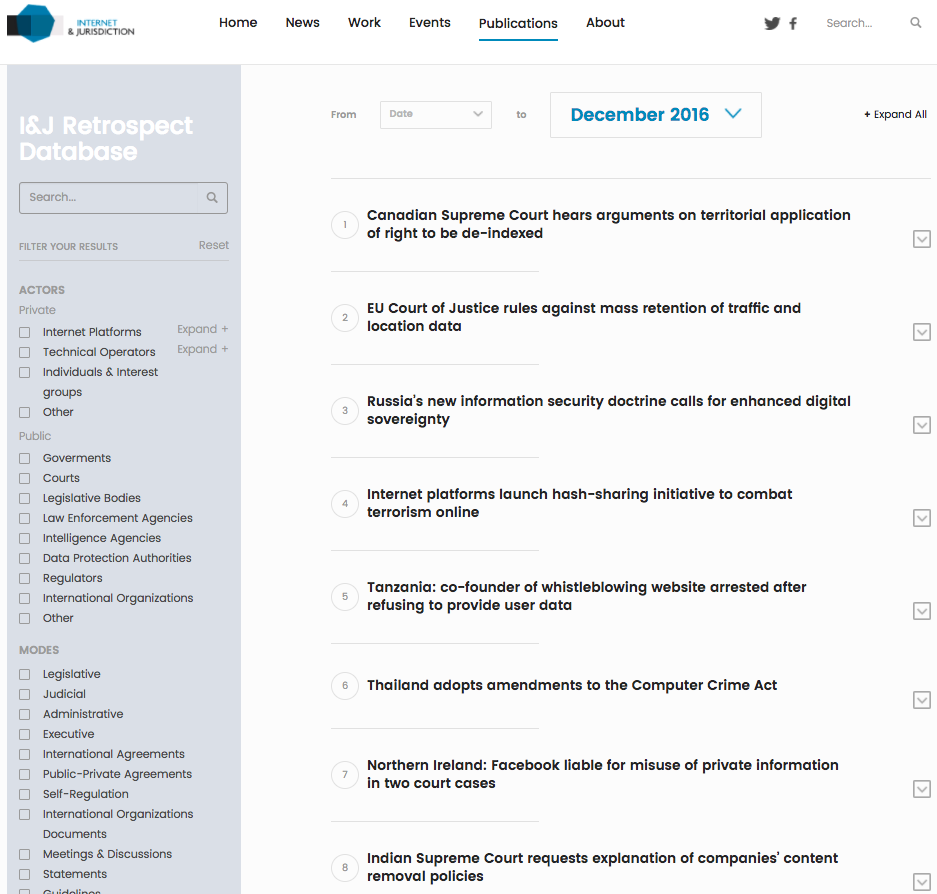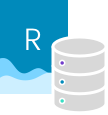An open access database to document jurisdictional trends on the internet and inform policy discussions
Following the launch of its new website, Internet & Jurisdiction is proud to present its open-access I&J Retrospect database containing more than 1,000 reports of cases illustrating jurisdictional tensions on the internet.
Each month, cases of jurisdictional tensions around the world are detected and analyzed by the I&J Secretariat. At the end of the month, the cases are ranked by relevance and importance via a crowd-curation process incorporating members of the I&J Observatory, an interdisciplinary network of selected world leading academics. Finally, the summaries from the top 20 cases, with links to relevant background information included in-text, are distributed to the policy network via the I&J Newsletter and added to the database. The latest I&J Retrospect issue is displayed by default when accessing the database.

The I&J Retrospect database allows users to browse and search the compilation of these cases, dating back to 2012. It provides a unique source of information to document emerging norms, identify trends and high-level patterns, inform policy discussions, and fuel academic research.
Internet & Jurisdiction has developed a tailored taxonomy to categorize the collected cases, ensuring a user-friendly and relevant search experience.

Along with sorting by date range by selecting start- and end-months, users can filter cases according the categories of keywords explained below:
Issue: jurisdictional tensions on the internet have been detected for a growing range of issues, ranging from intermediary liability and freedom of expression to data protection and international trade. Using these tags, visitors can tailor their results thematically to display the cases most relevant to their professional and research interests.
Actors: users can filter cases by types of actors that either initiated a case, or have been impacted or involved in such case. This category is broken down into two subcategories—public and private actors. Some tags can be further divided: for example, the tag of “Internet Platforms” can be expanded and refined based on the nature of online services.
Action focus: users can identify cases based on the concrete actions through which laws, judgements and regulations are complied with. The corresponding keywords allow to see cases related to, for example, internet access restrictions, data localization or access to user data.
Mode: These tags refer to the modes through which a case arose. Cases can be browsed according to branches of government (Legislative, Executive, Judicial, or Administrative), types of agreements (International or Public-Private), publications (Statements, Guidelines, Reports), and more. The utility of this category is to sort through the diversity of modes used by stakeholders to make decisions, take action and shape policies for the internet.


